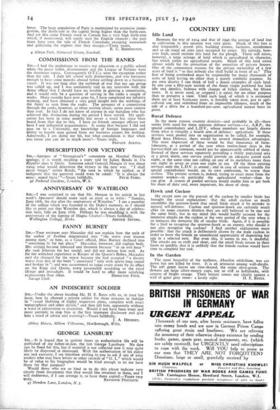Rural Defence In the more remote country districts—and probably in
all—there seems little need for three separate defence services—i.e. A.R.P., the special constabulary and L.D.V., whose members are largely drawn from what is virtually a fourth arm of defence: agriculture. If these services were pooled into an organisation to be called, for example, Rural Area Defence, there would be several immediate advantages. The most important of these would be that thousands of farm- labourers, at a period of the year when twelve-hour days in the harvest-field are common, would not be unnecessarily robbed of sleep. Instead of these services separately patrolling a thinly populated area at a given alarm, one service could provide an adequate patrol each night, at the same time not calling on any of its members more than one night in seven or even one night in ten. Of the three existing services only the L.D.V. is armed ; and in case of serious trouble the special constabulary would, on its own confession, be worse than uieless. The present system is, indeed, trying to exact more from the country worker—in particular the agricultural worker—than he can give. A system of pooled services would enable him to get both his share of duty and, more important, his share of sleep.






























 Previous page
Previous page